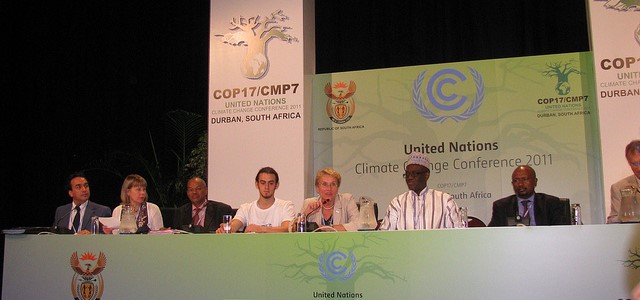The objectives of the NAP process are to reduce vulnerability to the impacts of climate change by building adaptive capacity and resilience; and to facilitate the integration of climate change adaptation, in a coherent manner, into relevant policies, programmes, activities, and development planning processes and strategies within all relevant sectors and at different levels, as appropriate.[1]
The UNFCCC LDC Expert Group (LEG) has issued technical guidelines to support countries in the NAP process. To further support countires on water related adaptation planning GWP has developed a Water Supplement to the technical guidelines.
GWP’s Global Water, Climate and Development Programme (WACDEP) supports countries in the NAP process and in particular for the integration of water security and climate resilience in development planning and decision making processes. The WACDEP is running from 2011 to 2016 and targets over 60 countries from Africa, Asia, Caribbean, Europe, and Latin America, and is aligned with the objectives of the UNFCCC NAP process.
To link global climate policy with on-the-ground action, GWP collaborates with the UNDP-UNEP Global Support Programme for NAPs (NAP-GSP). NAP-GSP is helping LDCs to advance NAPs, bringing greater focus and coordination to country-led efforts in disaster risk reduction and climate change adaptation. The support is based on three main pillars:
- Institutional support;
- Technical support; and
- Knowledge brokering.
[1] Decision 5/CP.17, paragraph 1
Photo: GWP and partners at COP17 press briefing in 2011.

